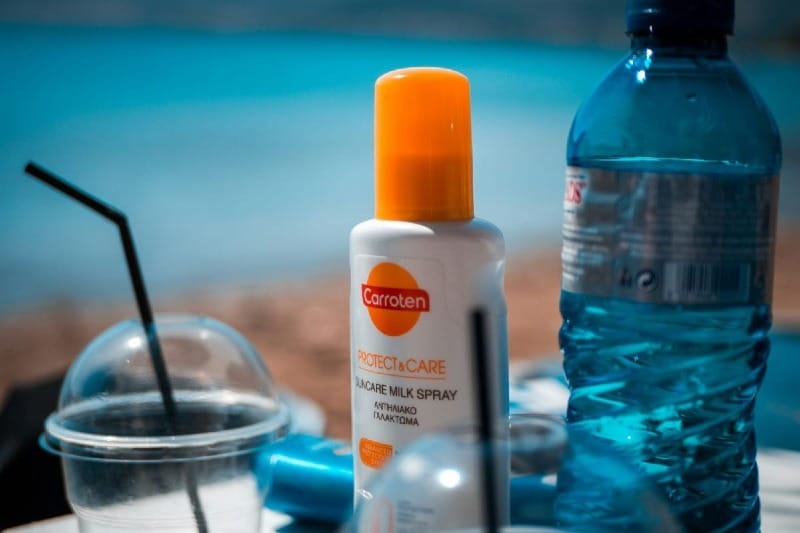Vitamin D is essential for our health, playing a crucial role in bone strength, immune function, and overall well-being. While we can obtain this vital nutrient from our diet, our bodies also produce it naturally when our skin is exposed to sunlight. However, with increasing awareness of skin cancer risks, many people diligently apply sunscreen every day. This practice has led to a common concern: Can we still get enough vitamin D if we wear sunscreen daily? This article explores the relationship between sunscreen use and vitamin D absorption, providing insights to help you maintain optimal health while protecting your skin.
Key Takeaways:
- Wearing sunscreen has little to no effect on vitamin D absorption.
- Regular sunscreen use does not cause vitamin D insufficiency.
- Most people don't apply sunscreen perfectly, allowing some UV rays to reach the skin.
- Brief, incidental sun exposure can contribute to vitamin D production.
- Diet and supplements can help maintain adequate vitamin D levels.
Understanding Vitamin D and Sunlight
Vitamin D is a crucial nutrient that supports various bodily functions, including bone health, nerve signaling, and immune system support. While we can obtain vitamin D from certain foods, our bodies are also capable of producing it naturally when our skin is exposed to sunlight, particularly ultraviolet B (UVB) rays.
Dr. Kellie Reed, a dermatologist at Westlake Dermatology in Texas, explains that when UVB rays interact with a protein called 7-dehydrocholesterol (7-DHC) in our skin, it triggers a process that converts the energy into vitamin D3, the active form of vitamin D[2]. This natural production is why sunlight is often referred to as the "sunshine vitamin."
The Sunscreen Dilemma
While sunlight is beneficial for vitamin D production, excessive exposure to ultraviolet rays can lead to sunburn, which is a strong predictor of skin cancer. This risk has led health experts to recommend the regular use of sunscreen to protect the skin from harmful UV radiation.
However, this recommendation has raised concerns about whether using sunscreen might interfere with our body's ability to produce vitamin D. After all, if sunscreen blocks UVB rays, could it also block our natural vitamin D production?
The Impact of Sunscreen on Vitamin D Absorption
Contrary to popular belief, wearing sunscreen does not significantly impact vitamin D levels in the body. Dr. Robert Den, a radiation oncologist and chief medical officer of Alpha Tau Medical, states that "sunscreen has little to no impact on vitamin D [levels]"[2].
This assertion is supported by scientific research. Studies have shown that regular sunscreen users are not more likely to be vitamin D deficient compared to those who don't use sunscreen[2]. One reason for this is that even when we use sunscreen, some UV rays still reach our skin.
Dr. Reed explains, "For example, an SPF 30 keeps out 97% of UVB rays with perfect application and reapplication"[2]. This means that even with diligent sunscreen use, a small amount of UVB rays can still penetrate the skin, which is typically sufficient to stimulate some vitamin D production.
Real-World Sunscreen Use
It's important to note that most people don't apply sunscreen perfectly in real-world conditions. Ideally, we should apply a full ounce of sunscreen to cover exposed skin and reapply it every two hours. However, as Dr. Reed points out, most people use thinner amounts and don't reapply as frequently as recommended[2].
This imperfect application means that more UV rays reach the skin than would with perfect use, further reducing concerns about vitamin D deficiency due to sunscreen use.
Incidental Sun Exposure
Even for those who are diligent about daily sunscreen use, it's nearly impossible to avoid all sun exposure. Dr. Lauren Penzi, a dermatologist with MDCS Dermatology in New York, notes that brief periods of unprotected sun exposure, such as when getting in and out of a car, can contribute to vitamin D synthesis[2].
These small bursts of sunlight exposure, while not enough to cause significant skin damage, can still help maintain vitamin D levels.
Factors Affecting Vitamin D Production from Sunlight
The amount of vitamin D our bodies can produce from sunlight depends on several factors:
- Skin color: People with darker skin typically produce less vitamin D from sun exposure.
- Age: Older individuals may produce less vitamin D from sunlight.
- Clothing: Wearing clothes that cover most of the body can reduce vitamin D absorption.
- Time of day: The body is most efficient at making vitamin D around noon when UVB rays are strongest.
- Environmental factors: Clouds and air pollution can affect the amount of UVB rays reaching the skin.
Balancing Sun Protection and Vitamin D Production
While it's clear that sunscreen use doesn't significantly impact vitamin D levels, it's still important to maintain a balance between sun protection and vitamin D production. Here are some strategies to consider:
- Brief, controlled sun exposure: Some experts suggest that 10 to 15 minutes of unprotected sun exposure on the face, arms, or legs a few times a week can be enough to maintain adequate vitamin D levels without significantly increasing skin cancer risk[2].
- Midday sun: A study in the United Kingdom found that just 13 minutes of midday sunlight exposure in the summer three times per week was sufficient for many people[2].
- Dietary sources: Include vitamin D-rich foods in your diet, such as fatty fish (salmon, tuna), egg yolks, and fortified foods like milk and orange juice.
- Supplements: If you're concerned about your vitamin D levels, consider taking a daily supplement. These are widely available at most pharmacies.
- Regular check-ups: Consult with your physician to check your vitamin D levels and determine the best approach for your individual needs.
Conclusion
The evidence is clear: wearing sunscreen every day does not significantly impact your body's ability to produce vitamin D. The small amount of UVB rays that penetrate sunscreen, combined with incidental sun exposure and dietary sources, is typically sufficient to maintain adequate vitamin D levels for most people.
However, it's important to remember that vitamin D needs can vary from person to person. If you're concerned about your vitamin D levels, speak with your healthcare provider. They can perform a blood test to check your levels and provide personalized recommendations.
Ultimately, the benefits of using sunscreen to protect against skin cancer and premature aging far outweigh any potential impact on vitamin D production. By using sunscreen regularly, eating a balanced diet, and considering supplements if necessary, you can maintain healthy vitamin D levels while keeping your skin safe from harmful UV radiation.
Citations:
[1] https://www.health.com/can-you-still-get-vitamin-d-sunscreen-8676719
[2] https://pubmed.ncbi.nlm.nih.gov/30945275/
[3] https://www.ncbi.nlm.nih.gov/pmc/articles/PMC10239563/
[4] https://www.verywellhealth.com/can-sunscreen-block-vitamin-d-7372964
[5] https://www.health.harvard.edu/staying-healthy/6-things-you-should-know-about-vitamin-d














Member discussion